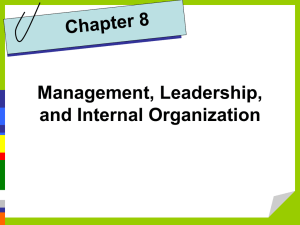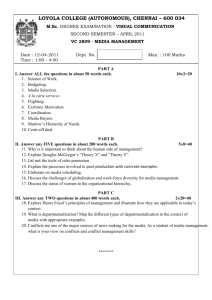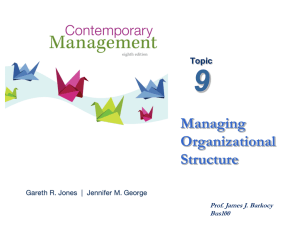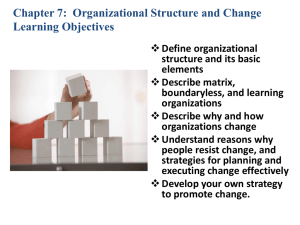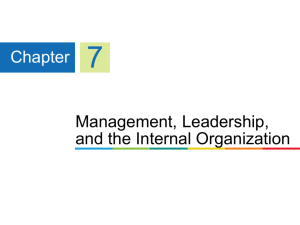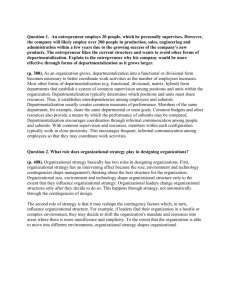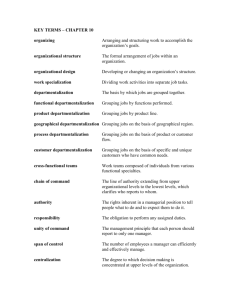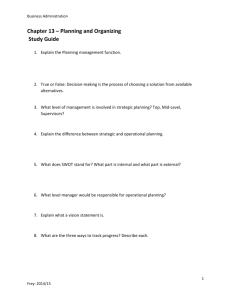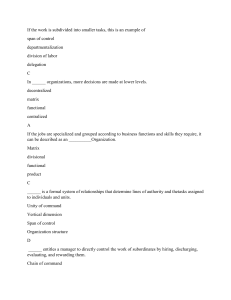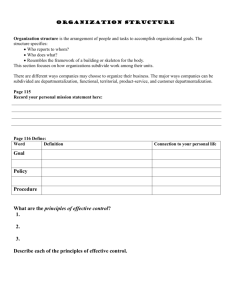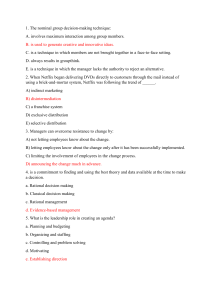Managers
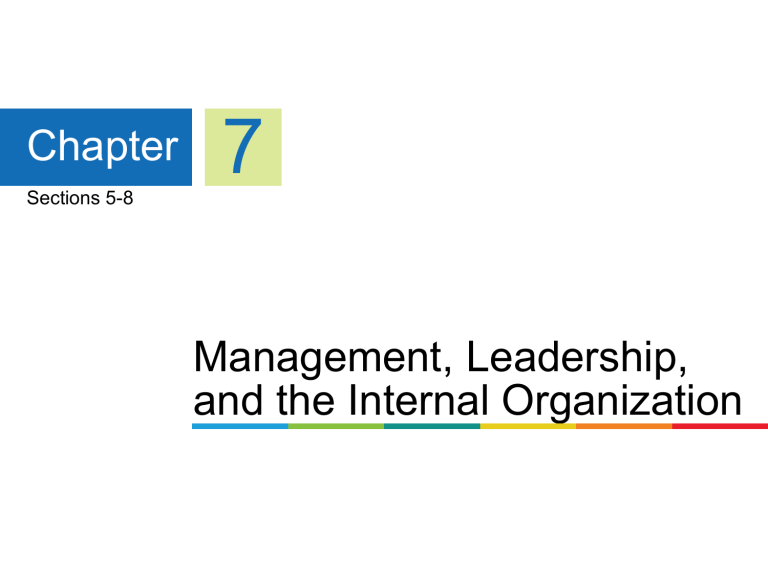
Chapter
Sections 5-8
7
Management, Leadership, and the Internal Organization
Managers as Decision Makers
Decision making is the process of recognizing a problem or opportunity, evaluating alternative solutions, selecting and implementing an alternative, and assessing the results.
Programmed
Nonprogrammed
Managers vs. Leaders
Managers manage tasks
Leaders lead people
Managers as Leaders
Delegation is the act of assigning work activities to subordinates.
Providing employees with the responsibility and the necessary authority for completing tasks.
Employees have accountability, or responsibility for the results of the way they perform their assignments.
Authority and responsibility move down; accountability moves up.
Empowerment is giving employees shared authority, responsibility, and decision making with their managers
Leadership Styles
Autocratic Leadership
Make decisions on own without consulting employees
Democratic Leadership
Involve employees in decisions, delegate assignments, and ask employees for suggestions
Free-Rein Leadership
Leave most decisions to employees
Corporate Culture
Corporate Culture : Organization’s system of principles, beliefs, and values.
Managers use symbols, rituals, ceremonies, and stories to reinforce corporate culture.
Search Business (or Corporate) Culture
Span of management, centralization, and decentralization
Span of management is the number of subordinates, or direct reports, a supervisor manages.
Centralization : decision making is retained at the top of the management hierarchy.
Decentralization : decision making is located at the lower levels. Many firms believe it enhances their flexibility and responsiveness to customer needs.
Organizational Structures
Organization: structured grouping of people working together to achieve common goals.
Departmentalization: process of dividing work activities into units within the organization
Departmentalization
Product departmentalization : organized based on the goods and services a company offers.
Geographical departmentalization : organized by geographical regions within a country or, for a multinational firm, by region throughout the world.
Customer departmentalization : organized by the different types of customers the organization serves.
Functional departmentalization : organized by business functions such as finance, marketing, human resources, and production.
Process departmentalization : organized by work processes necessary to complete production of goods or services.
Different Forms of
Departmentalization
Types of Organization Structures
Line Organizations
Oldest and simplest form; direct flow of authority from
CEO to subordinates.
Chain of command indicates who directs which activities and who reports to whom.
Line-and-Staff Organizations
Combines line departments and staff departments.
Line departments participate directly in decisions that affect the core operations of the organization.
Staff departments lend specialized technical support
(legal, marketing, human resources)
Line and Staff Organizations
Committee Organizations
Authority and responsibility are in the hands of a group of individuals.
Often part of a line-and-staff structure.
Often develop new products.
Tend to act slowly and conservatively.
Often make decisions by compromising conflicting interests rather than choosing best alternative.
The Matrix Organization
Page 211
Matrix Organizations
Project management structure that links employees from different parts of the organization to work together on specific projects.
Employees report to a line manager and a project manager .
Advantages:
Disadvantages:
Flexibility in adapting to changes.
Integrating skills of many specialists into a coordinated team.
Focus on major problems or products.
Outlet for employees’ creativity and initiative.
Team members’ permanent functional managers must adjust the employees’ regular workloads.
Discuss Together
Review Question #7
Divide into groups and answer:
Review Questions #8 & 9
Projects and Teamwork Applications #5
